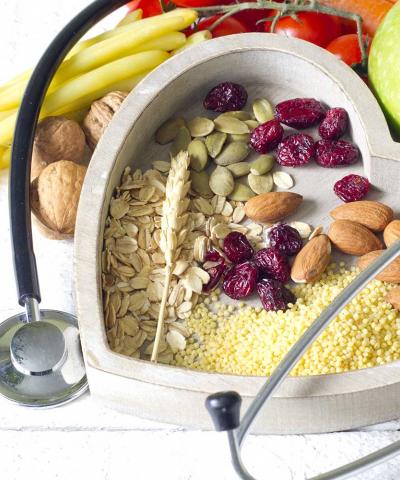Evaluate the health effects of food ingredients or contaminants, while controlling budgets, carrying out studies and promoting them scientifically.
The challenges of research and innovation in agrifood for health
- Know how to design, carry out and analyze studies aimed at assessing the impact on our health of the various components of a food matrix.
- Helping to draw up a budget, find funding and promote the results obtained.
This will involve acquiring skills in good laboratory practice, scientific evaluation methods, the design and implementation of preclinical and clinical studies, the drafting of scientific documents, and the management of intellectual property, while at the same time understanding the risks of the onset and development of chronic diseases linked to diet.
Course details
Major Innovation and Research in Food for Health
minors
Each semester includes 2 blocks dedicated to minors, corresponding to 54 hours of complementary courses that enable students to complete their training in a related field.
Some examples of minors
Block 1: Connected health / What about scientific approach - Research / Automated data processing : Python programming and methods / Numerics, Python and advanced methods / Innovate, undertake and combat creaticide attitudes
Block 2: Food hygiene and quality (in the food industry and catering) / The microbiota: at the heart of health / Marketing studies and consumer trends / CSR Focus
major Scientific Evaluation in Food for Health
minors
Each semester includes 2 blocks dedicated to minors, corresponding to 54 hours of complementary teaching, enabling students to complete their training in a related field.
Some examples of minor courses
Block 1: Food R&D: from concept to valorization / Popularize Science - Research / Introduction to the Web: Developing a website / Sales techniques and commercial relations
Block 2: Marketing decisions and actions / Mastering fermentation: Bioprocesses & Benefits / Health education players
In Semester 9, you can choose the path you want to follow, from :
- the main major of the Research and Innovation in Food for Health pathway, which takes a more in-depth look at this field: Bridging Agroressources to Health by innovation
- one or more opening majors, designed to broaden your skills in another field:
- Responsible food marketing (Beauvais campus)
- CSR/RSO - Changing behaviors (Beauvais campus)
- Intrapreneurship, entrepreneurship and innovation (Beauvais campus)
- a semester, double degree or degree-granting stay in France or abroad (from 12 to 18 months for a double degree or degree-granting stay)
The final project is based on an in-company work placement or research placement for students, or on the long period spent in a company for apprentices.
A final dissertation is written and presented orally.
What careers can I expect after completing the Research and Innovation in Food for Health course?
The Research and Innovation in Food for Health pathway enables you to work in the agri-food and pharmaceutical industries, in research centers or consulting firms.
some professions
- R&D Project Manager
- Research engineer
- Scientific communications manager
- Innovation manager
- Development manager
- Preclinical or clinical project manager
They welcome our engineers
INRAE – INSERM – DANONE – NESTLE – LESAFFRE – ROQUETTE – SOUFFLET – L’OREAL – Pôle NSL – Eurasanté – Institut Pasteur – CRO – PIERRE FABRE -
SANOFI
some Alumni
- Clara LEROND (2019), Research assistant, Nestlé Reseach
- Claire GUIVARCHE (2019), Doctoral student, INSERM
- Domitille VEY (2019), Head of Food Department, UFC Que Choisir
- Arnaud JARUGA (2010), Scientific Editor, Soladis Clinical Studies
- Damien PREVERAUD (2004), Global Scientific Manager, ADISSEO France SAS



